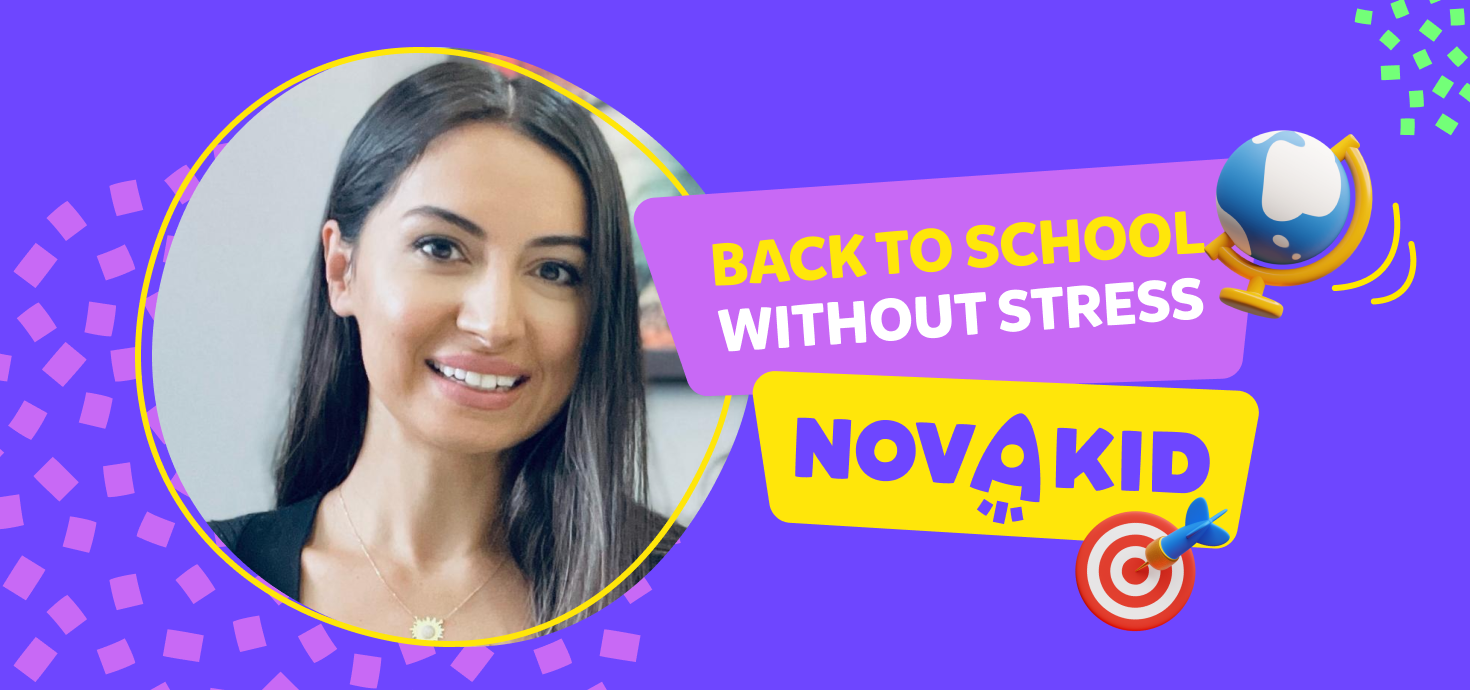Benefits of learning english at an early age – why should children start learning English early?
- It’s better to start learning another language at a young age, even before going to school
- What are the advantages of learning English at an early age?
- The importance of learning English at an early age
- How to learn English early? Where to start?
The fact that the English language is a vital skill is beyond doubt. Most parents realise that starting learning English early is important. But very few actually do something about it. First of all, pre-school education is not free, and second, it means that you will have to take your child to classes. They are already going to pre-school and have lots of classes, so why add more? Of course, you don’t want to sacrifice your and their free time. It’s much easier to start extra classes when they go to school – this might be what you are thinking.
But what if we told you that starting English classes early has numerous benefits that can help your child thrive academically, socially, and in their future careers? In this article, we will explore the advantages of learning English at an early age and why children should start learning a new language at an early stage. So, grab a cup of coffee and keep reading to discover all the benefits!
It’s better to start learning another language at a young age, even before going to school
It’s much better to start learning English at the age of 6 or even 4-5! Bilingual children are raised with intellectual and cognitive development focused on two languages from the day they are born. Exposing a child to more than one language in early childhood is super beneficial to young minds!
Usually, at the age of 4, kids can speak their native language pretty well, and their brain is actively developing and open to new things. Kids are interested in anything and everything and are ready to absorb new information like a sponge. Dancing, music, sports, chess… the sky is the limit! English or another foreign language could be a part of this list. There are psychological and physiological prerequisites of productive learning of a second language.
Psychological perspective
- The increased need for socialisation, kids want to meet new friends.
- The psychological barrier is minimal, because at this age kids become more sociable and talkative.
- Increased interest in learning: kids find out that there are a lot of new interesting things around them and attempt to expand the limits of what’s allowed in order to satisfy their growing curiosity.
- Playing by the rules: at this age kids start to realise that all games have their own rules that need to be followed in order to keep playing.
Physiological perspective
- The language system of their mother tongue is more or less clear to them. So they shouldn’t be mixing two languages.
- Their speech organs are still flexible, so they will be able to achieve the right pronunciation by mimicking the teacher.
- They still remember how they learned their mother tongue, so they will use the same principle when learning a new language. As a result, they will have an easier time remembering phrases and other language constructs, as long as they have regular practice.
- The cognitive processes (imagination, attention, guessing and memory) are actively developing. If you create the right conditions, kids can memorise large volumes of information.
The aforementioned points work in favour when learning a new language at an early age, and if you organise the lessons correctly, you will definitely achieve good results such as proficiency in speaking, learning new words and adapting to a multilingual society.

What are the advantages of learning English at an early age?
Kids that begin learning a foreign language before actually going to school, don’t have a language or a psychological barrier. It means that you don’t have to make an extra effort and create special conditions in order to get them to talk. They aren’t afraid of making mistakes because they start learning a language in an environment that does not evaluate their progress, and failure has no consequences. Communication skills benefit from this, because they first think about what they want to say, and not about what is the correct way of saying it.
Learning a language at an early age also develops abstract thinking, memory and imagination. What are the other benefits of kids learning English at a young age?
- Learning English faster: When children are young, they have an exceptional ability to retain information, and their brains are designed to assimilate new knowledge automatically. Additionally, their thought processes are simpler and less abstract, making it easier for them to learn English.
- Improved learning capabilities: Learning English at a young age reduces peer pressure and stress, allowing children to learn more quickly. Engaging in activities that strengthen their learning capacity and memory improves their cognitive abilities, and a higher level of consciousness formed early in the learning process helps them learn more quickly as they mature.
- Expanded vocabulary: Early English learning expands a child’s vocabulary, allowing them to learn new concepts and build on their knowledge. Learning how to speak, pronounce, and write English words from the beginning is crucial to this process.
- Academic excellence: Children who learn English become more adept at expressiveness, which is advantageous to their academic success. Early English learning provides them with the language skills they need to perform better on academic tests and excel in their studies.
- Future opportunities: English is a universal language used in many industries, and learning it at a young age opens up opportunities for children to explore the world and experience other cultures.
- Easy learning: Learning spoken English at a young age accelerates academic progress and makes it easier for children to learn difficult concepts.
- Improved self-confidence: Early English learning improves a child’s self-confidence and self-esteem, encouraging them to ask questions and overcome their fear of speaking and writing in English.
- Improved verbal fluency: Early exposure to English and regular practice speaking and listening to the language enhances verbal fluency and makes it easier to communicate in everyday life.
- Boosted brain activity: Learning English at a young age keeps the brain active and healthy, improving memory, creativity, and cognitive abilities. Children actively exercise their brains and memory while learning new words and grammar rules, which strengthens their mental capacity.
- Nurtures child’s curiosity and motivation: Mastery of English opens up a world of information, both online and offline, increasing children’s motivation and interest in research. They can explore new topics for hours, expanding their horizons and curiosity.
The importance of learning English at an early age
Of course, the main component of success is creating the right learning environment. Teaching English to preschoolers is much like teaching them their mother tongue. Kids “absorb” their native language from their surroundings and everyday interactions that they go through all day long. Repetitive situations help them make sense of the language used in various circumstances. Phrases that parents use when talking to their kids are easily memorised, because repetition is the mother of learning.
That’s why when learning English, it’s important to create a natural language-learning environment for the kids:
- Immersion into the English-speaking environment.
- Contextuality.
- Repetition.
Early English learning means speaking with kids only in English. Sometimes it might seem difficult for kids and that it’s better to switch to English gradually. But it’s a mistake to think that way. It is much easier for a child’s brain to get used to the fact that the teacher only speaks English. It’s taken for granted and their brain quickly starts learning. But it’s much more difficult to get rid of the habit of speaking in your mother tongue during lessons.
Contextuality and repetition are provided by playing out everyday situations with kids. The emphasis is on the “playing” part because games are a vital part of learning at this age. No extra explanations needed! This format is natural and easy to understand for preschoolers since it’s the only activity that they have fully mastered at this age. Games and gamified learning are used when introducing new language material, both vocabulary and grammar. The same approach is used when repeating and consolidating what they have learned, and trying to activate their speech. Switching between games (board games, role playing games, active games) helps retain children’s attention.
Various visual tools are used in order to help kids to better remember what they learned: toys, colourful pictures, everyday items, gestures and body language. Everything that helps influence the visual and emotional memory of the child and create a full picture.
Another important point is including elements of creativity into the lessons. Kids love to model, draw and craft things. Creative skills in preschoolers are much better than those of older kids, because arts and crafts are the main methods of learning at preschool. If creative tasks are included in each lesson and followed by comments in English, the three main conditions of learning will be met: immersion, contextuality and repetition.
Parents who want to teach their kids on their own can make use of the aforementioned advice and adhere to it when organising lessons at home.
How to learn English early? Where to start?
Let’s discuss this final but equally important point. How do you organise early English lessons for your kids?
First of all, do not make lessons too long. For preschoolers, 20-30-minute lessons are a perfect fit, the most important thing is to make them regular. Two or three times per week is ideal. The 10 daily time management ideas for kids can also help you establish a healthy English studying habit.
Second, do not pressure kids and do not make them do anything! If they protest, you need to analyse why they are behaving this way. Why do they feel negativity towards these lessons? Are they against learning English specifically? Or maybe they don’t like the teacher? Maybe your child is tired of all the noise at the kindergarten and group lessons seem even more tiresome? Or, perhaps, they are feeling “lazy” and simply don’t want to leave the house? “I don’t want to go to English class” does not mean that they hate English.
Try changing the format of the lessons. You could go to another teacher or switch from group to individual lessons. There are many benefits of learning a second language at an online English school, where kids can learn with native speakers from all over the world. Perhaps, your kids will like studying from home much better? This way, parents can observe during the lessons and find out what it is exactly that their kids have a problem with. English as a second language with a fun and interactive approach can be a great solution for your preschooler.
Some parents also wonder what is wrong about teaching preschool toddlers English grammar? There is nothing inherently wrong with teaching preschool toddlers English grammar, as long as it is done in an interesting and age-appropriate manner. In fact, learning grammar at an early age can be beneficial for a child’s language development and can set them up for future success in language learning. However, it is important to keep in mind that the focus should be on making the learning experience fun and engaging for the child.
Early English education through online lessons for preschoolers - with Novakid it's possible!
Many parents of preschool children already know that learning English from an early age is beneficial, but still wonder how to learn English early? Parents nowadays can decide whether they want their kids to attend online or in-person lessons. But more and more parents are opting for the online format nowadays. After trying it once and evaluating all the benefits and conveniences of online English lessons from their own experience, many parents choose this method of education.
At Novakid, we teach English online to kids aged 4-12 and know exactly how to make our students fall in love with learning a foreign language. Our virtual classroom offers a range of benefits for children, including access to native speaker teachers from around the world, fast-paced and engaging lessons based on the gamification teaching method, and a stress-free environment. Thanks to our amazing native speaker teachers, we ensure that children are exposed to a range of accents and dialects, which helps them develop their listening and speaking skills.
Kids learning English at Novakid are engaged all the time, with a focus on developing communication skills. All teaching programs at Novakid are run in accordance with the CEFR (Common European Framework of Reference for Languages) norm, which ensures that children are learning English at a level that is appropriate for their age and skill level. Additionally, all teachers on the platform are certified and ready to work with kids.
Other benefits of online lessons with Novakid are:
- You don’t need to commute.
- You can study from anywhere, if you go on a trip, you don’t have to cancel the lessons.
- Flexible schedule.
- You can choose your own teacher.
- You can study with a native speaker from any country in the world.
Generally, it’s only the parents who struggle with the idea of online lessons. Kids, born in the era of gadgets and digital technologies, see online lessons as something natural. In terms of learning English specifically, the online format provides more opportunities to create an authentic language environment. Students can choose any topic that they are interested in and dive into the interactive activities and games.
Overall, learning English online with Novakid is a fun, engaging, and effective activity. The use of native speaker teachers, fast-paced lessons, gamification, and stress-free virtual classroom environment all contribute to a positive and successful learning experience. Furthermore, the individual lesson format helps cater to various interests and goals of each student, which helps develop an interest in learning English. The first lesson at Novakid is free, so sign up and give our approach a try!









































Learning English at an early age offers countless benefits, including faster learning, improved brain function, and better academic performance. Thank you for sharing this informative article.